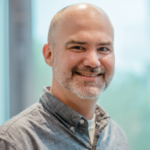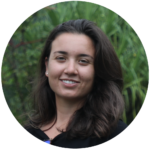Collaboratory Research Fellows explore research and programmatic efforts that enact Collaboratory’s mission and support member institutions and the broader field of higher education community engagement. Fellowships are designed to give practitioner-scholars a national platform to pursue research and programmatic ideas that correlate with ongoing Collaboratory initiatives.

Fellows lead projects that typically last 6-12 months and utilize de-identified data from Collaboratory institutions, or pursue relevant ideas and questions in partnership with campuses within and beyond our membership. Fellows receive a research award to support their efforts. Funds may be used for any expense judged supportive of the fellow’s research including staffing, conference/presentation support (e.g., registration fees), project expenses, equipment, or salary support.
Collaboratory is open to working with any researchers – whether faculty, staff, or students at an accredited institution of higher education or member of the larger community. We expect the fellow to have experience with or expertise in community engagement.

Dr. Jeremy Price is an assistant professor of technology, innovation and pedagogy in urban education at IUPUI. As a public scholar-advocate, Price is invested in using his experiences and expertise to engage and build capacity and capital in educational settings for marginalized and minoritized youth and communities to build, strengthen and sustain an inclusive and just democratic project. He works to prepare preservice and in-service educators to use technology for just, equitable and inclusive purposes that honor learners, their identities and their communities.
Fellowship Focus:
Dr. Price will examine Collaboratory data to extend, deepen, and advance the types of potential metrics that explain the impacts of community-engaged projects.
This fellowship is jointly hosted with the Coalition of Urban and Metropolitan Universities.

Dr. Kuttner has 15 years of experience in community-campus partnerships. A qualitative educational sociologist, his scholarship focuses on relationships between educational institutions (K-12 and postsecondary) and communities marginalized by our education systems. Paul currently serves as the Associate Director at University Neighborhood Partners at the University of Utah, where he leads the evaluation team.
Fellowship Focus:
Dr. Kuttner and his colleagues Dr. Erin Clouse and Tanner Ellison leveraged Collaboratory data to conduct a mixed methods study examining outcomes and impacts of community engagement in higher education and how they are conceptualized, measured, and facilitated across institutions. The study contributed to a baseline understanding of current practices and inform how institutions systematically measure and increase the impact of engagement.
This fellowship was jointly hosted with the Coalition of Urban and Metropolitan Universities.

Dr. Smith is the Associate Director for the Minority Achievement, Creativity, and High-Ability (MACH III) Center and an Adjunct Instructor in the Department of Educational Leadership and Counseling at Prairie View A&M University. Her scholarly interests focus on the experiences of faculty and administrators of color in higher education; diversity, equity and inclusion of underserved populations in higher education; and P–20 educational pipeline alignment
Fellowship Focus:
Dr. Smith worked on developing an “anti-racism scorecard” that can help institutions recognize and identify community-engaged anti-racist work and intentionally incorporate anti-racism work into engagement efforts across campus.

Jessica is the Sustainable Development Goals (SDG) & Beyond Task Force Coordinator at Arizona State University’s Julie Ann Wrigley Global Futures Laboratory. In this role, she co-creates strategy and execution of projects related to the SDGs with an emphasis on driving tech-based green growth which scales now and beyond 2030.
Fellowship Focus:
Jessica’s work explored the intersection of higher education community engagement with the United Nations’ Sustainable Development Goals to inform how institutions can better incorporate the SDGs into engagement efforts across campus.

Matt is the technical project manager in the Office of Community Partnerships at the University of Washington Tacoma. His background is as a software developer, working at several Seattle-area startups before moving back to Academia. Matt’s graduate work centered on applying cloud-computing solutions and automating processes to collect voluntarily generated spatial data and aggregate them through a pre-defined logic model
Fellowship Focus:
Matt is identifying new algorithms and methods for assessing the strength of relationships between internal and external partners using Collaboratory data. Matt’s work will identify common characteristics of ‘strong’ relationships, with the goal that practitioners can promote them in new and emerging partnerships.